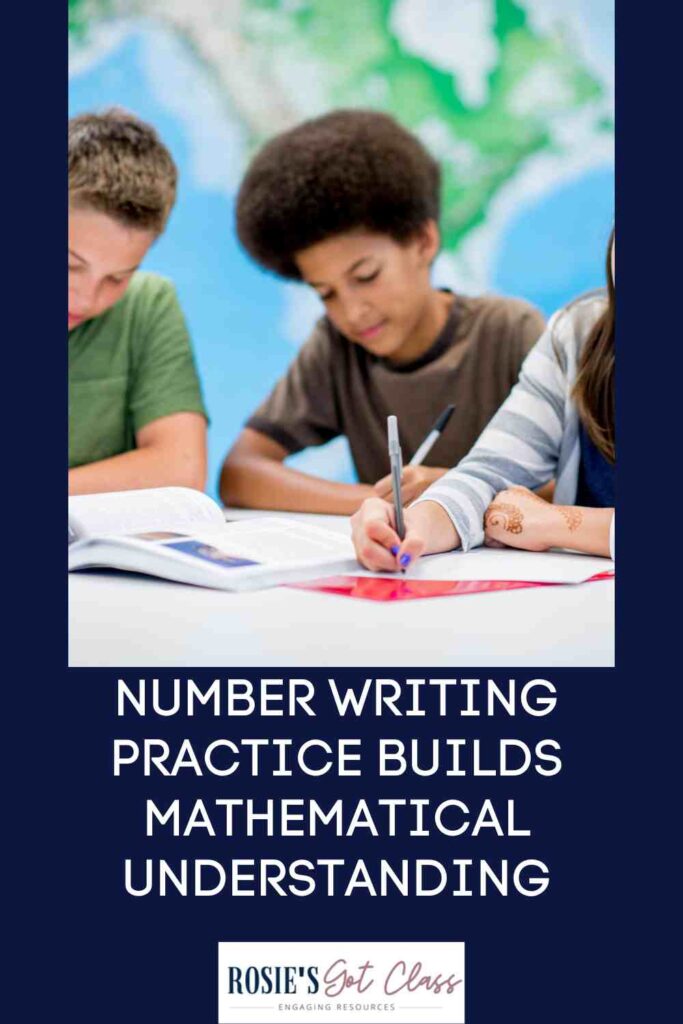
3 Powerful Reasons Children Should Practice Writing Numbers
Number writing practice is not outdated! Since our world is increasingly driven by technology, the act of writing numbers by hand might appear unnecessary. I disagree because the simple act of writing numbers is a fundamental skill that goes far beyond the realm of basic math. Students need to practice writing numbers while they are in their early years of education.
Number writing practice can be done with fun and engaging activities like this Neat Number Club math activity. Students can practice writing their numbers as they develop place value understanding. Each box allows them to write numbers correctly and in numerical order. This activity is easy to prep and has two versions to differentiate. Your students can write from 1 to 100 or from 1 to 200. This math activity helps students practice writing their numbers in an exciting way! This FREE sample of Neat Number Club is just what you need to help your students with their handwriting with their numbers. Type your name and email in the boxes, and Neat Number Club will be in your inbox.
Here are three important reasons students should have number writing practice. First, it builds mathematical understanding. Second, it builds fine motor skills. Last, it helps us communicate with numbers.

Number Writing Practice Builds Mathematical Understanding
Mathematics is a language that is used to describe and understand the world around us. Just as learning to read and write develops language comprehension, writing numbers is at the foundation of learning the language of math. When students engage in writing numbers, they reinforce their ability to recognize numerical symbols and develop a deeper understanding of numerical concepts and relationships.
When students write a multi-digit number such as 345, they need to understand what they are writing. They must recognize the “3” represents three hundreds, the “4” represents four tens, and the “5” represents five ones. Through this process, students develop the concept of place value.
Writing numbers also builds fluency in the basic math operations of addition, subtraction, multiplication, and division. When students are fluent in writing numbers, they are able to use their cognitive powers to solve the problem instead of spending time and mental ability in thinking about how to write the number. They don’t get lost in the process of forming the numbers because they have developed the skill of writing numbers with automaticity.

Number Writing Practice Builds Fine Motor Skills
The act of writing numbers plays an important role in the development of fine motor skills. In an age where digital devices are used often in the daily life of young children, the importance of building fine motor skills is even more necessary. Students need the coordination of their small muscles in their hands and fingers.

When students grip a pencil or pen to write numbers, they use a variety of fine motor skills including hand-eye coordination, finger dexterity, and grip strength. These movements are required to control their fingers and hands to form each number. They develop hand strength and stamina for proficient handwriting and other manual tasks.
For young students, the process of writing numbers is a part of mastering handwriting which is a skill that extends far beyond the realm of math. Proficient handwriting enhances communication, creativity, and cognitive development.

Number Writing Practice Helps Us Learn to Communicate with Numbers
Our world is filled with data and statistics. The ability to effectively communicate with numbers is a vital skill. Today’s society requires the skill to understand and work with numbers. Whether a student grows up to analyze trends in economics, interpret scientific data, or budget personal finances, understanding numbers is necessary in today’s society.
Writing numbers serves as a tangible way of representing numerical concepts and enables students to express quantitative information. Students learn to construct numerical expressions, equations, and mathematical representations which empowers them to explain complex ideas and solve real-world problems.
Writing numbers encourages students to talk about math as they express their ideas, justify their solutions and critique their mathematical reasoning. When children are able to communicate with numbers, they develop the critical thinking skills necessary to navigate an increasingly data-driven world.
The practice of writing numbers is far more than just writing numbers. It builds mathematical understanding, develops fine motor skills, and helps students effectively communicate numerical concepts. As teachers and parents, we must recognize the profound impact that writing numbers has on a student’s mathematical development and academic success. By encouraging students to embrace the practice of writing numbers, we empower them to unlock the power of math and build the way for numerical literacy and fluency.
Here are some other articles you may be interested in reading.


